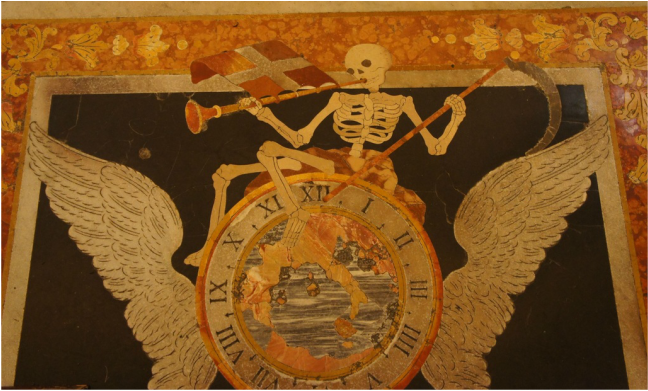--------------------------------------------------------
Is anything so self-evident that it cannot be doubted? Is it not possible that our lives are no more than dreams, or that the world is just a figment of our imaginations? Outlandish though these notions are, the mere fact that they are conceivable shows that the reality of the physical world can be doubted.
There are other ideas, however, which seemed to be so clear and self-evident that they must be true. For instance, whether you are awake or asleep, two plus two makes four. A triangle must have three sides whether the world, real or imaginary, contains triangles or not.
But what if God, or some powerful, malicious demon, is tricking you? Couldn't such an evil spirit fool you into believing that the false is obviously true? Haven't we seen hypnotists make people count to ten, unaware that they have missed out the number seven? And what of a man who, in a dream, hears four strikes of the clock tower bell and finds himself thinking, "How odd. The clock has struck one four times!"
If the evil Demon is a possibility, is there anything which is beyond doubt?
Baggini, J., The Pig That Wants to Be Eaten, 2005, p. 1.
--------------------------------------------------------
So we start with an exercise intended to cast doubt on everything you think you know. This is an old trick of philosophy to shake you out of your routine and put you in a place where you are open to reexamining issues you thought were settled. That's a useful mindset to have, but this method of getting there often backfires since it just means all the reexaminations cannot be trusted either. How many annoying freshman philosophy majors have thrown up that roadblock to conversations everywhere?
Sure, the evil demon is a possibility. And so is a universe run by a Judeo-Christian god, or by a host of gods on Mount Olympus, or in an advanced civilisation's computer simulation, or in an infinite number of other imagined scenarios. But we see no evidence of this. The laws of nature don't suddenly change from one day to the next at the whim of these puppet masters. If anything is up there pulling the strings...so what? Does that mean we should do anything differently? No, it does not.
Nothing is beyond doubt, and nothing is certain. As I said in my tenet #2, our knowledge is probabilistic. "Does being only 99.99...% sure that the sun will rise tomorrow mean that all knowledge is fatally flawed and we should abandon all efforts of planning and learning? Of course not! It is merely a reminder that we are not perfected creations and should not be surprised to see our knowledge grow and change as our observations and logical reasoning grow and change. It is a reminder that we will always have work to do in this endeavor to understand the universe and our survival within it. And it is a caution that we must be careful about going too far down an uncertain path (with, for example, climate change, genetic modifications, geoengineering, or agricultural monocultures) without hedging our bets against our uncertainties. We must find the balance between our ignorance and our hubris. We must find confidence: not meek under-confidence, not rash over-confidence. We must have a proud humility about what we have learned and what we still need to know."
What do you think? Do you doubt my answer? A small part of you should, but hopefully you'll say I'm probably right.


